Maria Gonzalez’s experiences of migrating to Australia ignited her passion to lead a team dedicated to bridging gaps between Australian organisations and multicultural communities.
(more…)From a very young age, Charlie* has had a passion for cars, and now, with the support of his mum and SSI Local Area Coordinator (LAC), he is pursuing his dream of further education and employment as an apprentice mechanic.
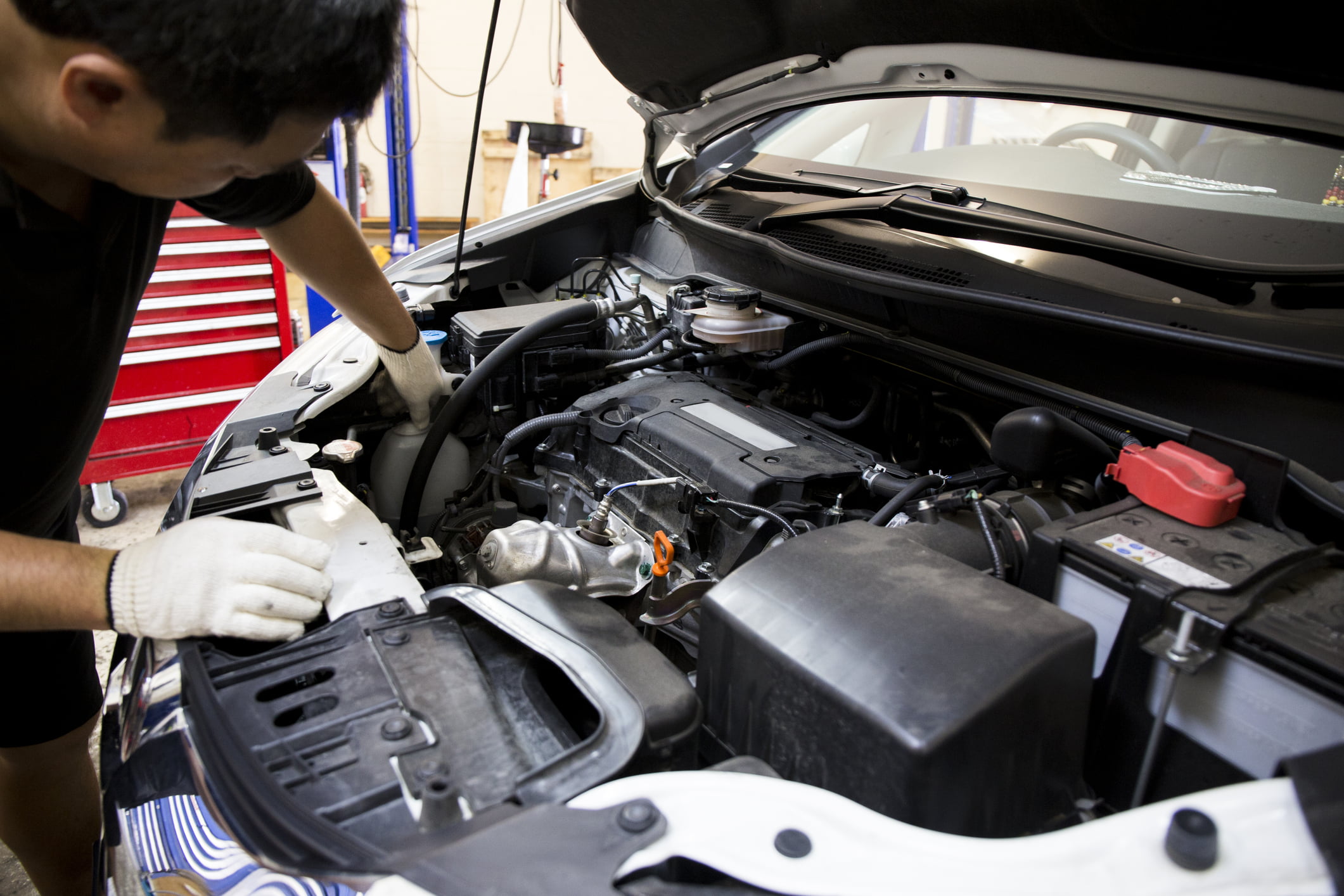
“I have worked with cars since I could talk; I have a really big passion for cars,” said Charlie, an 18-year-old man who lives with autism.
During his final years of high school, Charlie accessed the National Disability Insurance Scheme (NDIS) with the support of the SSI Local Area Coordination (LAC) Program and his LAC, Allyson Drever.
They discussed Charlie’s goals during the planning meeting, which included passing his driving test. The approved NDIS plan included funding for Charlie to participate in specialised driving lessons to help him gain the necessary skills and confidence to pass.
With his eyes firmly set on the goal of car ownership from a young age, Charlie had started working at a local fast-food restaurant when he was just 14. So, shortly after obtaining his provisional licence, Charlie could purchase his own car.
“If he wants something, he knows that [he] has to work for it; this is how much it’s going to cost, and he saves for it,” said Lenora, Charlie’s mum.
Lenora explains the remarkable transformation in Charlie’s driving since obtaining his provisional licence thanks to his specialised lessons. Whilst he was previously very anxious, Charlie has gained more confidence.
“Now he has all the confidence in the world to drive,” Lenora said.
“The constant experience of driving and the reassurance that he was doing the right thing, that’s what made the difference.”
Another goal in Charlie’s NDIS plan was to gain employment as a mechanic. LAC Allyson provided him with post-school options and linked him to mainstream supports to help achieve his goal. With Allyson’s help, Charlie secured an apprenticeship in the first term of Year 12.
Charlie’s life-long dream of becoming a mechanic has become a reality, and he is now thriving in his apprenticeship. He has taken the initiative to purchase his own set of tools to support him in his work and has also expanded his skills and gained new experiences through further education.
“I am also a qualified detailer and went to TAFE for it. Detailing is just as fun, and if you know what you’re doing, it’s absolutely amazing,” said Charlie.
Charlie’s journey has not been without its challenges, but he says that he uses strategies he has learned along the way.
“For example, when I was a mechanic, I learnt so much that I lost confidence in what I was doing. I had to learn to write things down and six weeks later see how much [I’d] grown,” Charlie said.
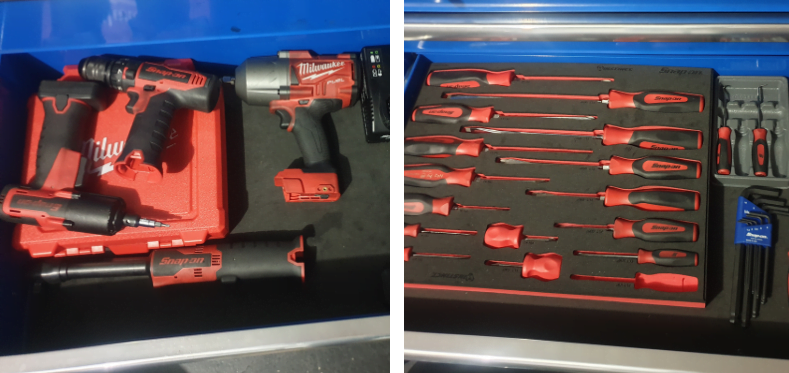
An assortment of tools that SSI LAC participant, Charlie, purchased for his apprenticeship.
Lenora expressed how the NDIS and SSI LAC program have been an immense help for Charlie, providing not only financial relief but also the stability needed for his interventions.
“It’s been fantastic; thanks to the NDIS, my son has been able to continue his therapies,” Lenora said.
“How would I find that support if it wasn’t for the NDIS?”
Lenora has been working closely with LAC Allyson to support Charlie. Having formed a strong partnership as Charlie’s supporters, Lenora recognises that she and Allyson can work together to help Charlie overcome any challenges and get the most out of his experiences.
“One new challenge to me is about finding and keeping a job. I’m very much looking forward to how we can communicate Charlie’s needs and how he can thrive in his new environment,” Lenora said.
The SSI LAC Program is designed to support you along your NDIS journey, giving you the knowledge and confidence to access services that potentially have positive life-changing impacts.
SSI is partnered with the National Disability Insurance Agency (NDIA) to deliver LAC services in NSW. The services provide a person-centred approach to support people with disability, their families, and their carers to pursue their goals, exercise choice and control, and connect with the community.
For more information, visit our webpage or call 1800 960 975 to speak with the SSI LAC Intake Team.
*Name has been changed.
The speed with which the Taliban seized control of Afghanistan in August 2021 caught the international community off guard. It led to a diplomatic exodus and the temporary disruption of well-established donor coordination structures. On World Humanitarian Day, we recap some of the work SSI staff and partners have undertaken to support the people of Afghanistan.
(more…)New research has quantified the devastating mental health impacts of temporary visas – something all too familiar for Iraqi-born Ferah* who, despite the challenges, has shown incredible strength and resilience in carving out a life for her and her children in Australia.
(more…)When his car broke down in remote Western Australia in April, Ivan Kelly found himself stranded thousands of kilometres from home without any phone reception. Instinctively, Ivan reached out to his SSI Local Area Coordinator, Melissa.
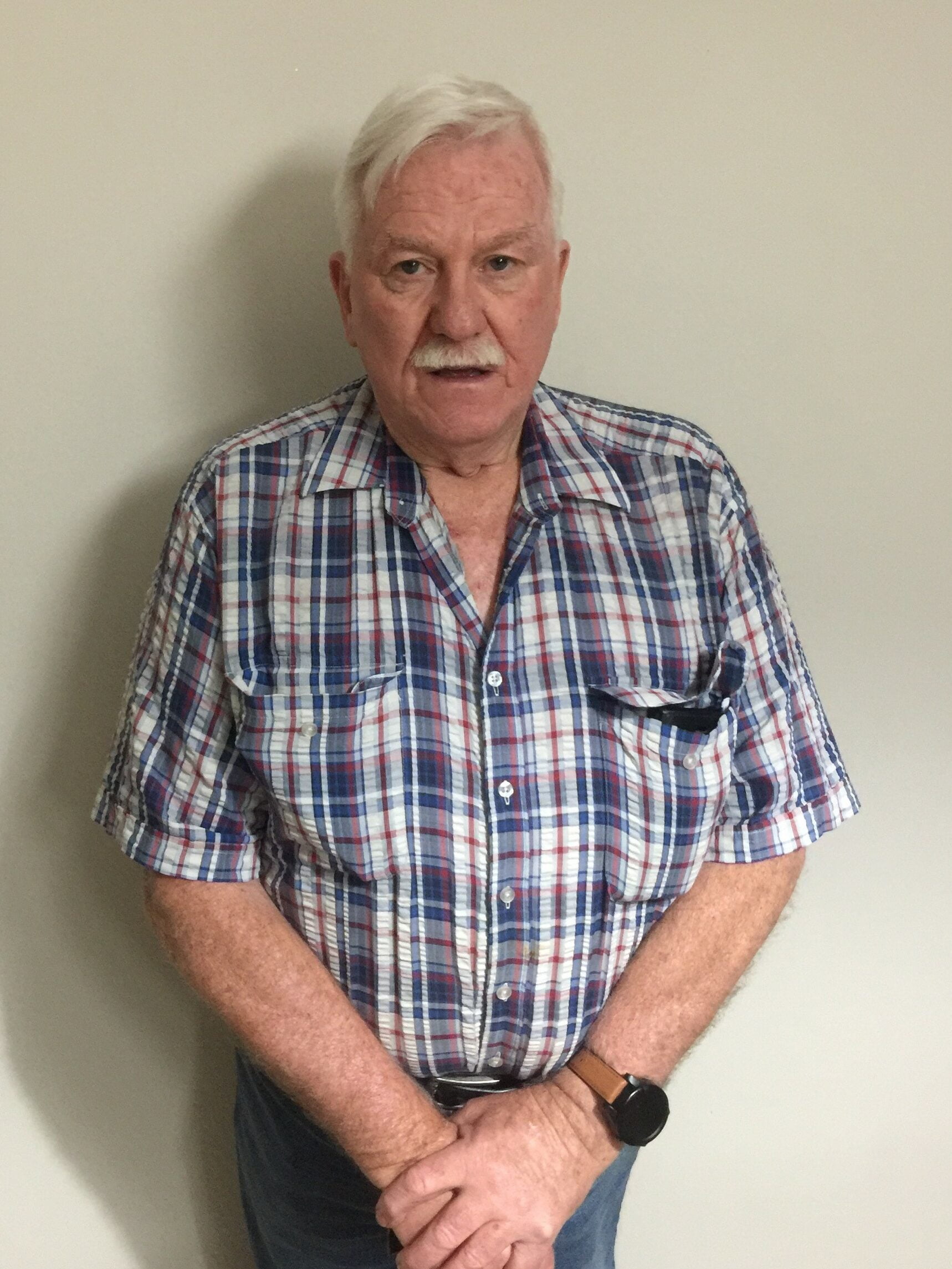
Departing from a shooting competition in Perth, Ivan had taken a scenic route on his way home to NSW’s Wollondilly Shire when his car broke down near the Warakurna Roadhouse, close to the Northern Territory border and nearly 800km away from Alice Springs.
The vast journey had not been daunting for Ivan, who has Inclusion Body Myositis (IBM), as he had spent most of his life as an interstate truck driver before his condition made it too difficult to climb the stairs of his truck.
“Normally, this wouldn’t have been a problem, but I couldn’t get a lift with the tow truck because of my condition, and getting transport out of there was going to be a major challenge,” he said.
Having to rely on the Roadhouse’s satellite phone, Ivan contacted his wife and his SSI Local Area Coordinator, Melissa, whom he had met just one month prior.
“It was a relief to be able to talk to someone who understood my condition,” Ivan said. “The only fear I had out there was how I was going to get home.”
Ivan is a participant of SSI’s Local Area Coordination program, a program that helps participants navigate the National Disability Insurance Scheme (NDIS) with confidence. As an LAC, Melissa works with participants, like Ivan, to create, implement, and review their NDIS plans.
Melissa and Ivan had talked about this road trip during their first planning meeting in March.
“Our focus was activating Ivan’s NDIS services when he returned from this trip. We never expected anything like this was going to happen,” Melissa said.
When Ivan called Melissa from the Warakurna Roadhouse, Ivan acknowledged that his vehicles repairs were not related to his disability support, however he wanted to arrange support worker assistance as he needed to get to Alice Springs where his vehicle was being towed to.
“I didn’t know much about the NDIS, so it was a case of contacting Melissa to see if they had any ways of getting me out because I couldn’t hitchhike or get in or out of a normal vehicle,” Ivan said.
Melissa swiftly searched for available supports.
“I was really concerned for Ivan and his wellbeing. Unfortunately, there were no support workers available due to the remote location, and the doctor and nurse were only there on certain days and times,” Melissa said.
Whilst Melissa was unable to connect Ivan with any immediate disability support options, she remained committed to helping Ivan nevertheless. The goal was to ensure that Ivan not just reached his car, but also safely made it all the way back home to Sydney.
Melissa went beyond contacting the aerodrome and Royal Flying Doctor’s Service, actively engaging with online Facebook groups and community boards in Warakurna, Alice Springs, and Yulara. She posted requests for assistance, seeking transport options for a stranded person with limited mobility.
“I got a reply from the company transporting the participants vehicle, Outback Recovery Service and they spread the word about him needing transport,” Melissa said.
Within a few hours, Melissa had helped coordinate for Ivan to comfortably be transported the 337 kilometres from Warakurna to Connellan Airport by a local Warakurna community member. With his car organised to be returned home from Alice Springs, Ivan boarded a flight and arrived safely back in Sydney.
“The support from the Roadhouse manager, the local community, and Melissa was incredible. Everyone there looked after me and made sure I was okay,” he said.
“It was a relief to be able to talk with my wife and Melissa while I was stranded out there. It took a lot of the stress out for me and my wife.”
Melissa’s relentless efforts to ensure Ivan’s safe return exemplify the core values of support and care that define the SSI Local Area Coordination program.
“I really wanted him to know that he wasn’t in this situation by himself, and that I was taking steps in the background to try and assist him as much as possible,” Melissa said.
“If the Warakurna member wasn’t available to drive Ivan, we would have kept going until we found another solution.”
SSI is partnered with the National Disability Insurance Agency (NDIA) to deliver LAC services in NSW. As an LAC provider, SSI supports people aged 7 – 64 to access the National Disability Insurance Scheme (NDIS) and other mainstream services in the community. For more information and to find out if you’re eligible for NDIS support visit the Local Area Coordination section of our website.
First Nations’ communities are incredible advocates and thought leaders, grounded in an ancient wisdom and deep connection to ancestry, land and sea.
(more…)Now a successful business owner, Mohsen’s story has a happy ending, and on World Refugee Day, he joined with SSI, our partners and other people with lived experience to call for the implementation of five barrier-breaking solutions that would ease the way for newcomers like Mohsen to realise their full potential.
At our World Refugee Day Fair on June 20, we hosted parliamentarians, employers and community partners on the lawns of Parliament House in Canberra to launch the Billion Dollar Benefit report: a roadmap for unleashing the economic potential of refugees and migrants.
We were pleased that so many friends and partners were present to formally accept the report, which SSI produced in partnership with the Settlement Council of Australia, the Federation of Ethnic Communities Councils, and Community Corporate. You can see some of our highlights from this special day here.
The Billion Dollar Benefit report draws on consultation with 50 experts and people with lived experience, which identified five priority solutions to unleash the potential of migrants and refugees. These include:
- We must fix the broken skills and qualifications recognition system. Australia’s current system is complex, time-consuming and bureaucratic.
- We need to strengthen protections for migrant workers. No single person should control both your passport and your paycheck – it’s a recipe for exploitation.
- We must review the right to work for people on temporary visas. Denying work rights can increase reliance on social welfare and leave individuals vulnerable to exploitation.
- We need to scale innovative ‘tripartite’ partnerships. Investing in partnerships among the public, private and NGO sectors would provide wrap-around employment solutions for newcomers to Australia.
- We must reform the English language requirements. English language requirements must be fit for purpose and aligned with the role and industry.
These actions would provide sustainable employment pathways for newcomers to Australia. They would also plug critical skills gaps and add billions to our economy.
After arriving in a new country, gaining work is one of the most effective ways newcomers can rebuild their lives. However, refugees and migrants face significant hurdles to finding meaningful employment and are at greater risk of exploitation.
Breaking down barriers for our newcomers is a responsibility shared by employers, non-government organisations, unions, refugee-led organisations, and all levels of government.
It was heartening to see representation from across these sectors, with a strong appetite for change.
How you can help
You can show your support by endorsing this roadmap by sharing the findings on social media, and other communications channels or having a conversation with people around you.
If your organisation would like to endorse the report, please send your organisation’s logo to Dane Moores, SSI’s Head of Strategic Relations, at dmoores@ssi.org.au.
We thank everyone who has supported our efforts so far, and we look forward to welcoming more organisations and individuals into this community committed to building better futures for Australia’s refugees and migrants.
Together, we can ensure that newcomers have equal opportunities for meaningful economic participation and the chance to realise their full potential in their new homes.
When Mohsen Shahsavarzdeh finally arrived in Australia after three year’s detention on Christmas Island, his first priority was to get a job – any job.
(more…)After initially living in neighbouring Iraq, Ms Razzouk arrived in Australia in April 2022 on a humanitarian visa. But with no professional network, a lack of understanding of the Australian job market, and no local driver’s licence, she needed support to get back on her feet and rebuild her career in a new country. And she could not wait!
“From the moment I arrived in Australia, I wanted to start applying for jobs. I really didn’t want to wait any longer because I spent four years in Iraq due to the pandemic lockdowns. I spent a lot of time waiting so when I arrived in Australia, I felt the wait was finally over.”
Support and encouragement from her dedicated Refugee Employment Support Program (RESP) Employment Facilitator provided Ms Razzouk with pathways to explore employment goals, improve her resume and interview skills, attain a driver’s licence, and explore short-term goals that would lead to greater employability skills.
“I was in touch with my facilitator every day asking what else I can do to learn new skills or enrol in courses. As a newcomer in Australia, I had so many questions and need a lot of information.”
At the start of the job hunt, she found the Australian accent particularly challenging despite having studied English for years.
“I already knew how to express myself and engage with new people in English but during my first months, the Australian accent was a challenge. In job interviews, I would struggle to understand the interviewer as they would speak quickly, and I’d have to ask them to speak slower or repeat their questions. But day by day I got better and improved my language skills.”
With SSI’s support, Ms Razzouk was referred to various job opportunities, and within six months of arriving in Australia, she was offered a part-time job with IKEA working in their member and customer relations team.
“As my first local work experience, it was the first for me for everything – my first office, first team, and first manager in Australia. This experience taught me so much about the Australian workplace, and I felt supported from the start. The team trained me and arranged every small detail to help me deliver my best performance. Everything was well organised, and I never felt scared or embarrassed if I didn’t know something. This surprised me a little.”
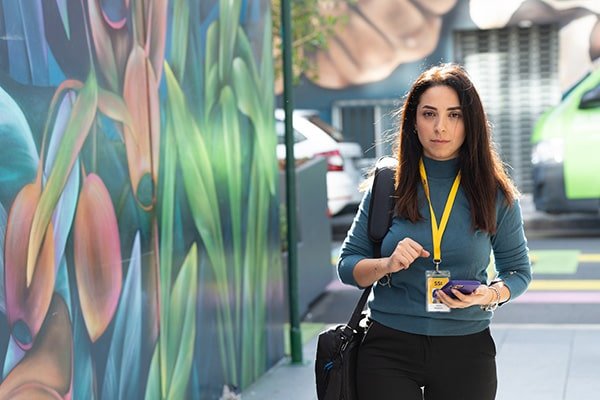
Following her first positive entry to the Australian workplace, Ms Razzouk landed a full-time position with the organisation that supported her from the start, SSI. As an intake administrator in SSI’s RESP team, she now helps others achieve their career goals in their new home country. She is also planning to enrol in a course to study community services to deepen her skills in the sector and continue achieving her big career goals.
“I plan to keep building on my skills in management and administration so I can reach higher, year after year. In 1-2 years, I plan to be a supervisor and in 3-5 years, a team leader,” she said.
“When it comes to my long-term goals, I could manage my own business, or even build a big training centre. Or I could have a political job or stay in the community sector. These are all different fields I could explore because of my qualifications, skills and the flexible personality and strength I have.”
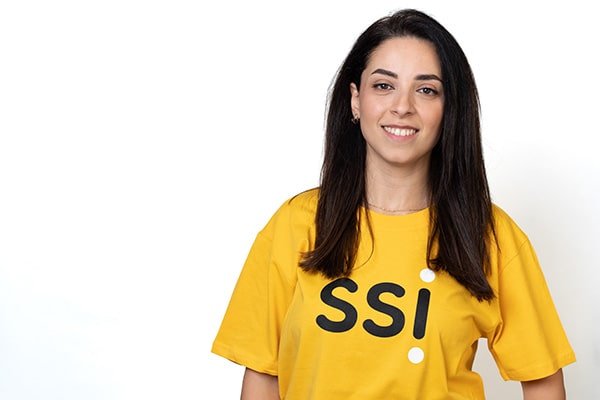
Ms Razzouk’s confidence and passion are immediately evident to anyone who meets this future leader. When reflecting on this part of her character, she acknowledges her confidence is a key ingredient that’s helped her achieve a lot she can be proud of today.
“The first reason for my confidence is my family who are in Syria but support me every day. Being in Australia is a personal win for me. I’m proud I was able to move on, face all the challenges I faced for all those years, and end up here,” she said.
“When you live in limbo for years, and then life gives you an opportunity to realise your dreams and rebuild your life in a safe country – you will get this confidence! Because life is giving a new opportunity to rebuild the life that you want. This is the source of my confidence.”
With more than six years practising dentistry in a clinic, and seven years lecturing at a dental faculty, Sadia was hopeful she would have the opportunity to continue her career in Australia. But she has faced a maze of barriers to achieving her goal.
Sadia undertook the complex and expensive process of having her overseas qualifications recognised with the guidance and support of SSI’s Refugee Employment Support Program (RESP). Her efforts came to a standstill after she was unable to attain one of the government documents from her country of origin, which is required to sit the Australian Dental Council (ADC) exam.
In the meantime, Sadia searched for employment in dental clinics across Sydney so she could earn a living and maintain a connection to her career.
“I applied for dental assistant jobs in the meantime but was declined because I did not have Australian experience,” Sadia said.
To resolve this, Sadia asked to sit in at a local clinic two days a week as a volunteer ‘observer’ while she completed her English language course at TAFE.
After several months of hard work and frustration, Sadia’s situation took a positive turn. In December 2022, she was offered a part-time role at Auburn Road Dental Surgery, and with the support of RESP, she was able to track down alternative documentation to sit her dental exam.
Sadia is now juggling working at the clinic two days a week while caring for her two young children and working towards refining her professional English language skills.
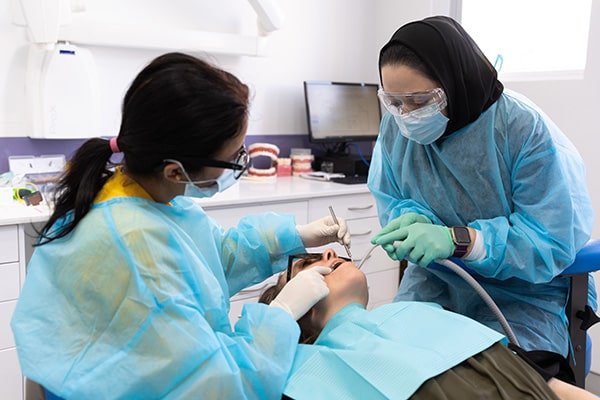
She plans to sit her ADC exam in early 2024 and is determined to be able to utilise her years of experience and expertise in Australia.
Refugee women have been shown to have the same or higher participation in higher education as Australian-born women, and more than a fifth of refugees work in the healthcare sector.
By removing the additional barriers professionals like Sadia have in utilising their skills in their new homes, Australia can unlock a skilled workforce that will positively contribute to our economy and society.
“I have dedicated almost 20 years of my life to my profession – I cannot leave it behind. I dream of working again as a dentist, but it’s incredibly difficult,” Sadia said.
